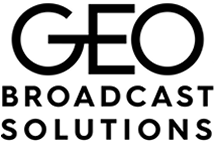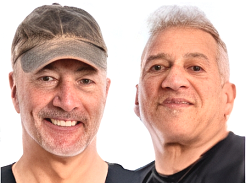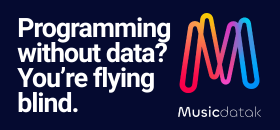Advertisement
|
FCC Opens Comments to Allow OTA Radio to Add Geo-Targeting
| RADIO ONLINE | Friday, April 3, 2020 | 6:46pm CT |





|
 |
The FCC is requesting comments on the petition filed by GeoBroadcast Solutions on March 13 seeking a rule change that would permit radio broadcasters to air geo-targeted programming, including emergency alerts, news and advertising on a voluntary basis. The technology, called ZoneCasting, has been in development by GeoBroadcast Solutions since 2011.
Members of the public can go to https://www.fcc.gov/ecfs/filings and enter proceeding number RM-11854 to file a comment of any type. The process requires that all comments be composed in a .doc or .pdf format that can be uploaded on the site.
"We encourage the radio industry, as well as emergency responders, and the small business community to show the FCC their support for our rule change proposal, in order to improve the technology afforded to radio broadcasters and to provide services and communications for the public good," said GeoBroadcast Solutions CTO Bill Hieatt.
The rule GeoBroadcast seeks to change relates to FM boosters, and no changes to the FCC's rules regarding translators or interference are necessary. The new rule would be similar to the 2017 FCC decision that allowed television broadcasters to use the Next Generation TV standard -- also known as ATSC 3.0 -- and distribute geo-targeted programming.
Radio is currently the only mass medium that cannot geo-target its content. The ability to add localized weather and traffic, news, emergency alerts and advertising is beneficial to listeners, small businesses, and advertisers and would allow the industry to progress and remain competitive in the market.
The specific proposed revision adds the following language: The programming aired on the FM broadcast booster station must be "substantially similar" to that aired by its primary station. For purposes of this section, "substantially similar" means that the programming must be the same except for advertisements, promotions for upcoming programs, and enhanced capabilities including hyper-localized content (e.g., geo-targeted weather, targeted emergency alerts, and hyper-local news).
Importantly, this geo-targeting technology relies on existing consumer radio receivers that are synchronized with FM booster radio stations and originate localized content and insert it at specific and limited times while otherwise retransmitting the primary station's signal. It would be optional for broadcasters and does not impact interference between neighboring stations and does not cause harmful self-interference.
According to a recently released joint study by BIA Advisory Services and Advertiser Perceptions, more than 90 percent of local retailers and two-thirds of national advertisers are poised to put more money into FM radio when geo-targeting becomes available.
Advertisement
|
Latest Radio Stories
Key-United Expands Sales Leadership Team with New Hires
|
Nicole Alvarez Takes Midday Slot at Alt 98.7 Los Angeles
|
Chaz & AJ Return to Long Island on 94.3 The Shark
|
Advertisement
|
NAB Launches Campaign for America's 250th Anniversary
|
Curtis Sliwa Joins WOR Morning Lineup in New York
|
Tom Donahue's Truth Matters Shifts to Streaming
|

















